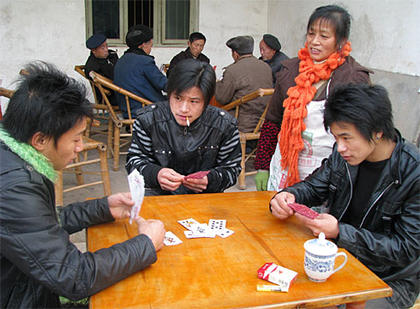For Lei Sanjun, 25, who spent seven years making sneakers in the coastal factory city of Dongguan in Guangdong province, government help will take too long to transform Bamboo Pole. "My hometown is backward. Just look at the poor roads and few factories here," he says.The average income for Chinese farmers is about $690 a year — less than a third of what is paid in urban areas. The shortage of well-paying jobs explains why as many as half of the laborers in Bamboo Pole, population 50,000, decided to seek factory jobs — and why their return is so problematic now.
"It'll be a troubling year," predicts Victor Shih, a Northwestern University professor who researches China's economy.
Many of the jobless migrant workers will stay in cities to try their luck, possibly at smaller salaries.
For those who go home and stay, Shih says, rural life will come as a shock. "These young people were farmers, but they have lived in big cities, and their expectations are now a lot higher."
Chen Xiwen, a top rural planner for the Chinese government, says new arrivals will face entrenched rural problems such as pollution and land expropriation. He encourages government officials not to use force to break up protests.
Tuesday, February 17, 2009
Unemployed Chinese workers go back to the villages
USA Today reports on the 26 million newly jobless Chinese people leaving the industrial cities of the Pearl River Delta and returning home to rural villages in the provinces, and of the strain this is putting on Chinese society.


No comments:
Post a Comment